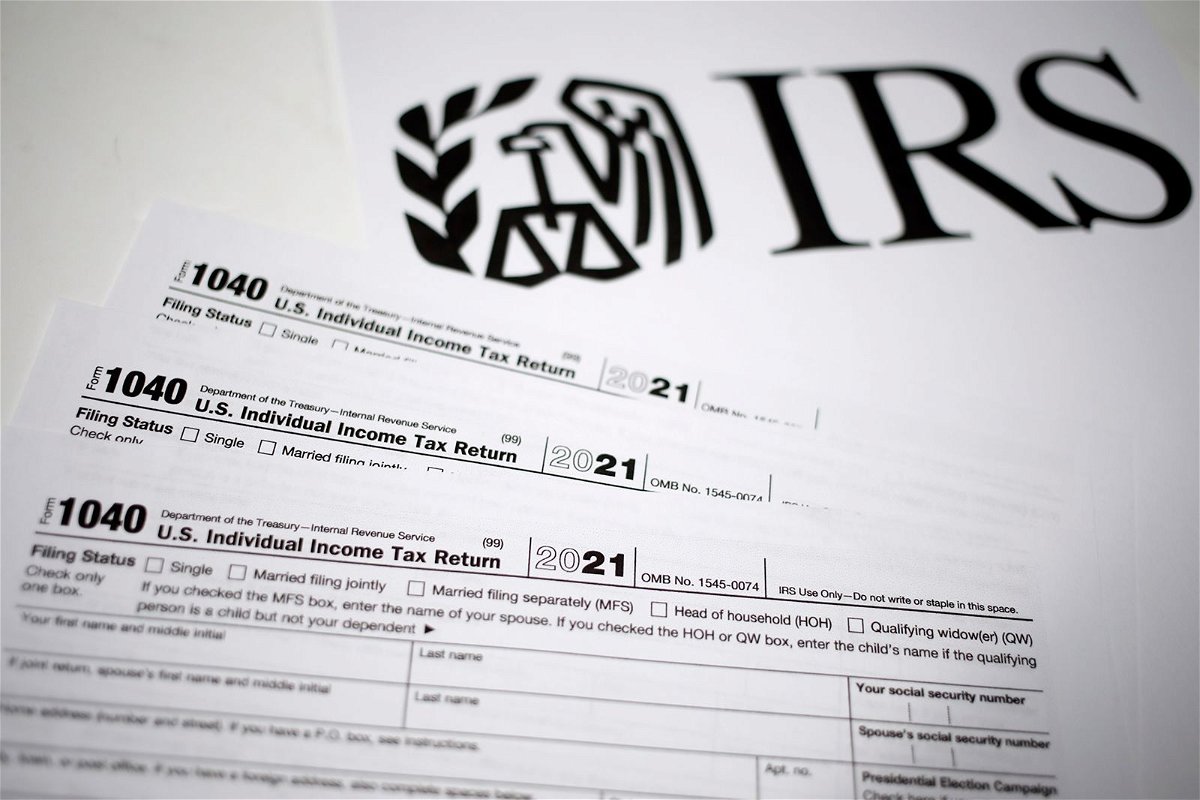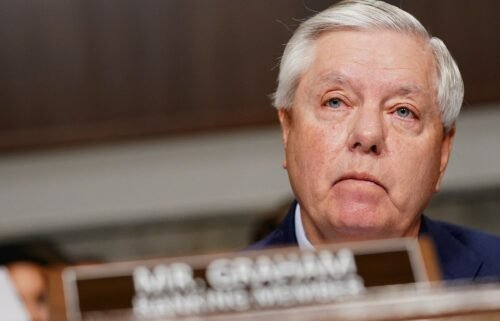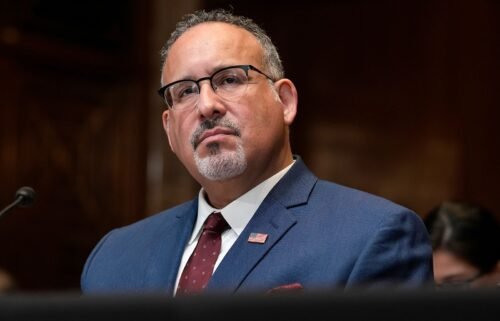Here’s what we know about the 2024 presidential candidates’ tax proposals

None of the 2024 presidential candidates have released detailed tax proposals.
(CNN) — Creating a flat tax. Eliminating the federal gas tax.
Florida Gov. Ron DeSantis and former South Carolina Gov. Nikki Haley, who are vying for the 2024 Republican presidential nomination, threw out some catchy phrases about their tax plans at CNN’s debate on Wednesday. But they did not provide many details.
With the start of the 2024 primary season only days away, DeSantis, Haley, former President Donald Trump and President Joe Biden have yet to flesh out their tax proposals. They are unusually thin for this point in the election cycle, experts said.
“They’re being deliberately unspecific,” said Howard Gleckman, senior fellow at the nonpartisan Urban-Brookings Tax Policy Center.
All the candidates, including Biden, have at least one thing in common: They want to extend at least some of the measures of the 2017 Tax Cuts and Jobs Act, which Trump championed and signed into law. The fate of the individual income tax provisions will be a top priority of whoever wins the November election since they are set to expire at the end of next year.
However, continuing the individual income and estate tax cuts would slash federal revenue by $2.6 trillion over a decade, according to the right-leaning Tax Foundation. And restoring some business and international tax measures that were changed by the 2017 TCJA law would reduce revenue by up to another $1.1 trillion.
That drop in tax revenue would come at a time when both political parties are worried about widening federal budget deficits and mounting debt, sparking battles in Congress over funding government agencies for fiscal 2024.
Here’s what we currently know about the candidates’ tax plans.
DeSantis: The Florida governor voiced his support of a flat tax at CNN’s debate but said only “if people are better off than they are now.”
“I want people paying less taxes,” he said, voicing a similar sentiment to what he said at CNN’s town hall last week.
Asked at the debate whether working families would pay the same rate as billionaires, DeSantis said that “working-class people” would pay no tax – referencing people who make $40,000 or $50,000. Then it would be a single rate after that level.
However, DeSantis has not specified what the single rate would be, nor what he would do about deductions, exemptions and credits.
Setting the rate so that it would reduce taxes for all Americans would be tricky.
“If you move to one single flat rate that cuts taxes for everyone, you’d be talking about a very, very low single flat rate, such that you’d lose a lot of revenue,” said Erica York, senior economist at the Tax Foundation.
The idea of a flat tax has been floated in prior presidential elections. Steve Forbes, Rick Perry, Ben Carson, Herman Cain and Ted Cruz are among those who have proposed various versions of a flat tax.
DeSantis said at CNN’s town hall last week that he wanted to eliminate the IRS. But that would be very difficult to do since the federal government needs some agency to collect taxes and make sure taxpayers are adhering to the rules.
DeSantis has also said he would extend the TCJA’s individual tax rates for a longer period of time and seek to make them permanent. And he would tighten international tax rules and make permanent a now-expired TCJA provision that allowed businesses to immediately deduct 100% of their investment in machinery and equipment.
The DeSantis campaign did not return a request for more details.
Haley: The former governor ticked off several of her tax proposals at CNN’s debate.
“We’re going to eliminate the federal gas and diesel tax in this country and cut taxes on the middle class and simplify those brackets,” she said.
But she hasn’t specified what exactly she would do.
Haley also said at the debate that she wants to make permanent the TCJA’s small business tax cuts. The law contains a provision that allows pass-through businesses, such as partnerships formed by lawyers, doctors or investors, to deduct up to 20% of their income on their tax returns through 2025. But she hasn’t said she would extend all of the TCJA’s individual income tax measures.
In addition, Haley supports eliminating $500 billion in green energy subsidies in the Inflation Reduction Act, which Democrats pushed through Congress in 2022. And she would reconsider the state and local tax deduction, which allows taxpayers to deduct a portion of their state and local income, general sales and property taxes from their federal income taxes. The TCJA limited the deduction, which largely benefits blue states, to a total of $10,000.
The Haley campaign did not return a request for more details.
Trump: Among the former president’s most notable tax proposals is his desire to place a universal baseline tariff of 10% on all US imports. It’s in keeping with his less favorable view of global trade, which prompted him to impose numerous tariffs during his administration. While he argues tariffs protect US manufacturers, many economists say that higher tariffs hurt American consumers, businesses and the economy.
Trump has yet to provide details on this measure. Among the questions are whether the tariff would be on top of existing tariffs or would replace them, York said.
In addition, Trump has supported extending the TCJA’s individual income tax breaks and has talked about reducing the corporate tax rate from the current 21% to 15%.
The Trump campaign did not return a request for more details.
Biden: The president has made it clear during his first term that he supports raising taxes on corporations and higher-income Americans but would protect those earning less than $400,000 annually.
The Biden campaign hasn’t released a tax plan, but he has put out comprehensive proposals as part of his annual budget packages.
In his most recent one, he supported increasing the top individual income tax rate to 39.6%, from 37%, for individuals earning more than $400,000 and married couples with incomes above $450,000.
The president is also interested in a so-called Billionaire Minimum Income Tax, which would levy a 25% minimum tax on all the income of the wealthiest .01% of Americans, including their appreciated assets. It would hit those with a net worth of more than $100 million.
He would also increase the corporate income tax rate to 28%, from 21%, and increase other levies on businesses, including quadrupling the stock buyback tax to 4%.
“I’m not anti-corporation, but it’s about time they start paying their fair share in taxes,” Biden said at a campaign event last month.
The-CNN-Wire
™ & © 2024 Cable News Network, Inc., a Warner Bros. Discovery Company. All rights reserved.



